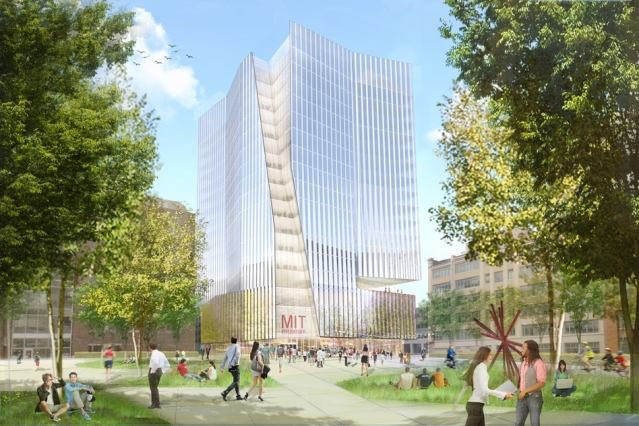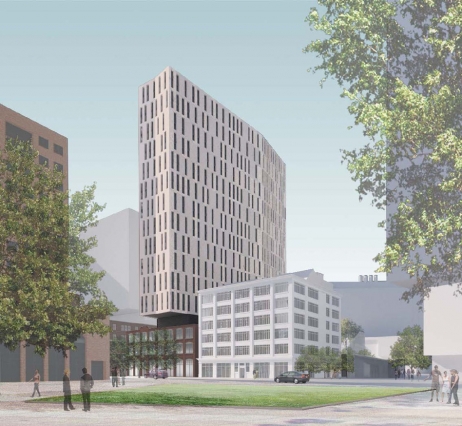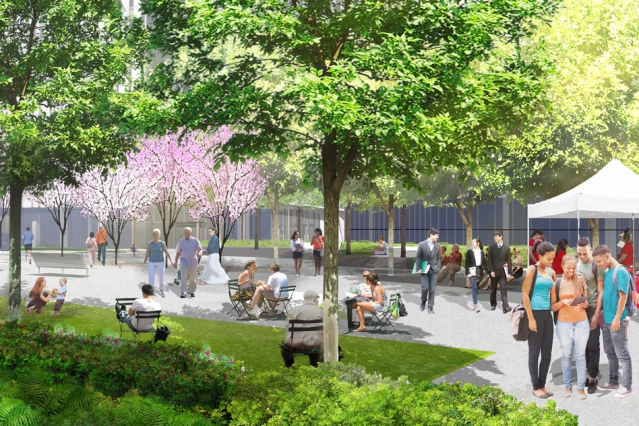
MIT took a major step toward completing a planned six building, multi-use development in the heart of Kendall Square worth more than a billion dollars.
The university hopes that the Kendall Square Initiative will help to further enliven the neighborhood. MIT sees its plan as vital to its educational goals and the further development as one of the hubs of Greater Boston innovation through the expected many uses for the spaces.

Under the university’s plans, the development would include three new buildings for research, two for housing and a hybrid office space/retail building. In total, MIT plans to add 50o housing units for both graduate students and non-affiliates and 100,000 square feet of new and repositioned ground-floor retail according to an MIT press release.
“This project is really important to the academic mission of MIT,” Marty Schmidt, the Provost of the university, told me. “MIT as an institution really focuses on how we can take the ideas on this campus and move them out so they have impact.”
Schmidt believes that the space will help get those ideas out through potential mutualistic relationship created by the new space in Kendall. Companies and organizations are lining up to move to the area and the office space created by this project offers them the chance to do that and encourage potential collaborations with MIT.
According to Schmidt, funding for the estimated $1.2 billion initiative will be entirely private. Some will come out of the core budget of MIT due to the academic nature of a substantial portion of the construction including a graduate residence tower and an MIT Museum. The rest will be supported as if they were typical commercial activities. Schmidt hopes that companies and organizations will want to be a part the developments and will lease space.
The next step for MIT is to undergo a complete review of the plans by the Cambridge Planning Board, a process that may take months due to the scale of the project. Once approved construction will take between six and ten years.

The City of Cambridge approved the zoning of the project in 2013 in an effort to encourage increased development in the area. While some may fear what a huge scale development – such as MIT’s – will do to the Cambridge community, Schmidt sees potential.
“I recognize that some people are concerned about the density, but this is a trend we’re seeing, and I think it’s a trend that creates very vibrant communities and great places for people to live and work,” he said.

